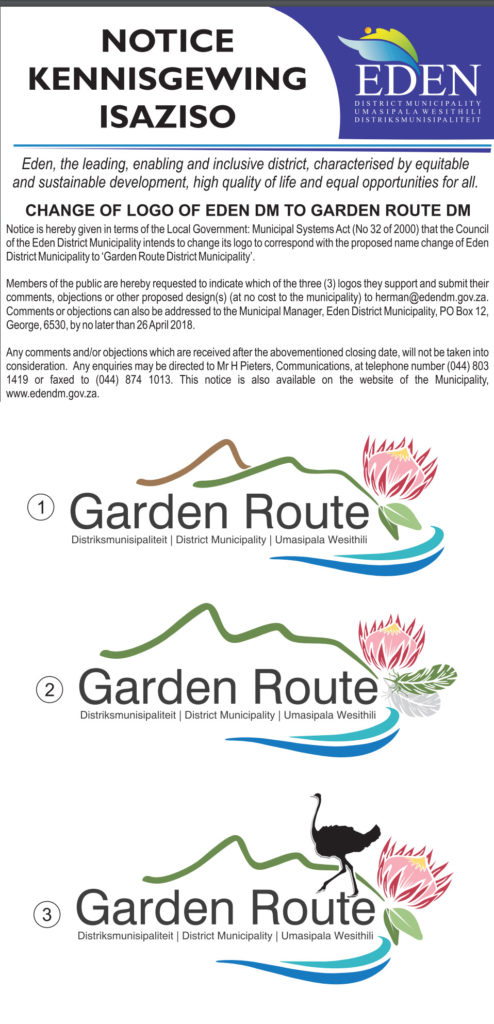Health Surveillance of Premises by Garden Route District Municipality
Environmental Health
Environmental Health is concerned with the health and well-being of people and other living things. This field of study does this by addressing elements of health and safety and assessing various physical, chemical, biological and social factors in the surrounding environment that may negatively impact the health of present and future generations.
Environmental Health Practitioner
Environmental Health Practitioners (EHPs), sometimes referred to as Health Inspectors, play a critical role when communicable diseases are at large. EHPs’ role in such instances includes preventative measures which revolve around hygiene inspection of premises, the general environment, health education and awareness campaigns.
The content of this article will focus on one (1) key performance area of Municipal Health Services namely ‘Health Surveillance of Premises’ whereby only two (2) types of premises will be discussed, ie.
- Cleaning and laundry facilities
- Health surveillance on farms
Health surveillance of premises is a Municipal Health Services Function, performed by Environmental Health Practitioners (EHPs) of the relevant local authority.
The National Act of 2003 (Act 61 of 2003) specifies that environmental health inspections and investigations be undertaken. Environmental Health inspections involve the identification, monitoring and evaluation of health risks, nuisances and hazards on any premises and instituting remedial and preventative measures where necessary.
1. Cleaning and laundry establishments
Environmental health inspections focus on the following areas of a b:
Structural requirements:
- The layout of the facility;
- Ventilation requirements;
- Drainage system(s);
- Interior wall surfaces;
- Ceilings;
- Floor surfaces; and
- Height from floor to ceiling.
Water supply and sanitation facilities:
- Total toilet facilities and hand wash basins;
- Toilet facility requirements;
- Provision of change rooms determined by the number of employees working at the premises;
- Provision of soap and disposable towels at hand wash basin; and
- Effective drainage and sewage disposal system requirements.
Storage, work areas and facilities:
- Provision of a workroom, fixed and movable equipment;
- In the case of receiving depots – provision of a separate area;
- Floor area requirements;
- Provision of a separate area and separate designated counter for receiving and dispatching of articles;
- Provision of area for receiving and marking of soiled and dirty articles (working tables, adequate containers, hanging rails and shelves);
- Provision of storage room;
- Provision of hazard-free lockable storage for chemicals;
- Packaging shelves requirements;
- Machinery and equipment equipped with adequate suction fans;
- Provision of a separate pre-rinsing area; and
- Sanitary conditions of all fittings, equipment and appliances.
General requirements:
- Compliance with emission levels regarding the National Environmental Management: Air Quality Act, 2004 (Act No. 39 of 2004);
- Provision and requirements of staff kitchen; and
- Fire department requirements.An inspection report indicating the conditions of the facility as well as recommendations (if any) will be issued to the owner or person in charge after every inspection.
2. Health surveillance on farms
The purpose of Municipal Health Services on farms is to enable the Municipality to protect and promote the long-term health and well-being of all people in the municipal area.
A suitable qualified EHP is appointed to perform duties as unpacked in the National Health Act (Act 61 of 2003) and Health Professions Act (Act.56 of 1974), to render municipal services routinely on an 18-month interval on every farm in the Garden Route District.
The municipal health services/functions require the following to comply with:
- Structural facilities such as farm workers residence must comply with the requirements of the National Building Regulations and the Building Standards Act, 1977 (Act No. 103 of 1977);
- Drinking water supply and treatment method;
- Proper drainage systems;
- Waste management;
- Vector control;
- Safe storage and control of Hazardous Substances;
- Sanitation; and
- Other activities such as farmstalls, B&Bs or Guesthouses, Home industry and Creches.





















